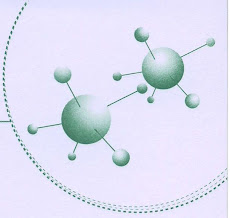A common preservative found in many soft drinks can cause serious cell damage and fatal illness, according to a UK study conducted in 2007.
Research indicates that sodium benzoate, an ingredient in many soft drinks and sauces, has the ability to deactivate parts of DNA and eventually cause diseases such as Parkinson's and cirrhosis of the liver.
Sodium benzoate is indicated in Australia as "Preservative (211)" on ingredients lists, and is included in Sunkist, Diet Coke, Sprite, Pepsi Max, and many other drinks and condiments.
Peter Piper, a professor of molecular biology and biotechnology who has been studying sodium benzoate for eight years at Sheffield University, found that the presevative seriously damages living cells.
"These chemicals have the ability to cause severe damage to DNA in the mitochondria to the point that they totally inactivate it: they knock it out altogether," Prof Piper told The Independent on Sunday.
The findings came from laboratory tests conducted with sodium benzoate on living yeast cells. Prof Piper was alarmed by the chemical's destructive impact on the "power station" of the cells known as the mitochondria.
"The mitochondria consumes the oxygen to give you energy and if you damage it - as happens in a number of diseased states - then the cell starts to malfunction very seriously," Prof Piper continued.
"There is a whole array of diseases that are now being tied to damage to the DNA - Parkinson's and quite a lot of neuro-digenerative diseases, but above all the whole process of ageing."
Sodium benzoate occurs in small amounts naturally in berries, but is used in large quantities to prevent mould in soft drinks.
The additive has been the subject to controversy for some time. Last year it was revealed that the chemical reaction between sodium benzoate and vitamin C creates benzene, a carcinogenic chemical.
"The food industry will say these compounds have been tested and they are completely safe," Prof Piper said. "By the criteria of modern safety testing, the safety tests were inadequate. Like all things, safety testing moves forward and you can conduct a much more rigorous safety test than you could 50 years ago"
He advised parents to think twice about letting their children drink products containing the chemical.
"My concern is for children who are drinking large amount," he said.
Source: http://news.ninemsn.com.au/article.aspx?id=269520&print=true
Date of article: 28 May 2007
Cholesterol
16 years ago
.jpg)



I love going to the market to buy fresh food for the family and I usually get up early so I can get the best of the best. The other reason why I love going to the market is to see what others would buy. I believe what they buy reflects their lifestyle.
ReplyDeleteLast Sunday I did exactly that and was enjoying myself choosing and selecting the meat, veg, fish and so on and so forth. It was all well and good.
However, something really disturbed me. I saw children drinking soft drinks in the early morning!!! It was disheartening for me and I saw their parents who were with them. A lot of thoughts and questions went thru my head. After all that, I said to myself that the ultimate question to ask is "Do the parents know what they are feeding their children? On the other hand, how would the parents know if they are not being informed?"
Health awareness should always be part of our daily learning and development. Eventhough I have no medical background, I always believe that to know about our body and the things we put in our body is our own responsibility.
It is through my passion that I want to share with everyone whatever I know and however little information I have. This is the motivation for me to start this blog.